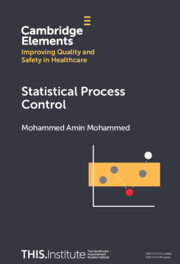Refine search
Actions for selected content:
2 results

Statistical Process Control
-
- Published online:
- 27 February 2024
- Print publication:
- 28 March 2024
-
- Element
-
- You have access
- Open access
- HTML
- Export citation
Chapter 22 - Plan Monitoring and Evaluation
- from Part V - The Quality of Emergency Operations Planning
-
- Book:
- Disaster Planning
- Published online:
- 21 October 2021
- Print publication:
- 04 November 2021, pp 143-154
-
- Chapter
- Export citation
